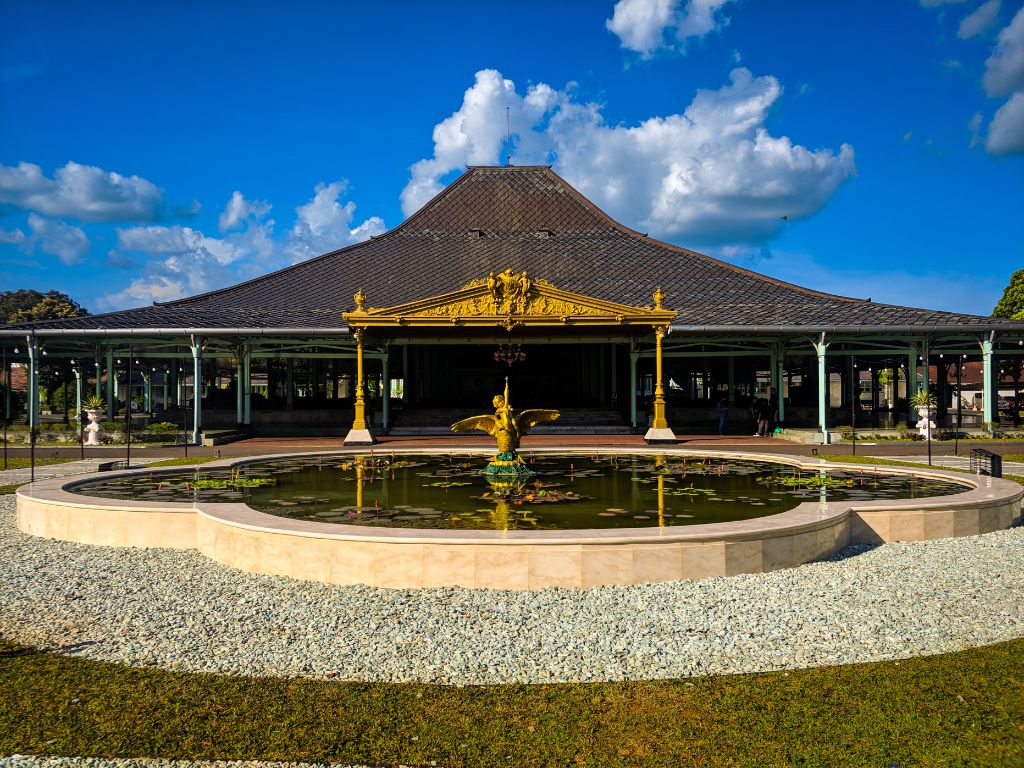
Universitas Sebelas Maret (UNS) is located in the heart of Surakarta, commonly known as Solo. Strategically situated in Central Java Province, Solo spans an area of 44.04 km² and serves as a cultural hub of Javanese heritage with a rich historical legacy. According to a 2022 survey by the Indonesian Association of Urban and Regional Planners (IAP), Solo consistently ranks among the most livable cities in Indonesia. The city's uniqueness lies in its harmonious and diverse community, where people from various ethnic and religious backgrounds coexist peacefully.
Solo is not just a cultural city but also an ideal hub for education. In addition to UNS as the leading state university, the city is home to several reputable higher education institutions, such as the Indonesian Institute of the Arts (ISI) Surakarta, Raden Mas Said State Islamic University (UIN), and various esteemed private universities. With its relatively affordable cost of living, Solo is an excellent choice for students pursuing higher education. The city’s calm and comfortable atmosphere provides a conducive environment for learning and academic growth.


As a modern city, Solo boasts an integrated and accessible transportation system. Adi Soemarmo International Airport serves as the city’s air gateway, connecting Solo to major cities across Indonesia. On land, the city is supported by three strategic railway stations (Solo Balapan, Solo Jebres, and Purwosari) that provide connections to various destinations on Java Island. The modern Tirtonadi Bus Terminal functions as a hub for intercity and interprovincial bus services. For urban mobility, residents and visitors can rely on the comfortable Batik Solo Trans bus service and a wide range of 24/7 online transportation options. Complementing its transportation infrastructure, Solo also features modern amenities such as internationally accredited hospitals, modern shopping centers, and lush public spaces like Balekambang Park and Sriwedari Park, which serve as vibrant community hubs. Bicycle lanes along several main roads and pedestrian-friendly walkways make it convenient for residents to enjoy cycling or walking while taking in the city’s tranquil atmosphere during the morning or evening.
Students from outside Solo, including both Indonesian and international students, have various accommodation options to choose from, such as UNS dormitories, rented boarding rooms (available on annual or monthly leases), rental houses, or apartments. For Muslim students, numerous student pesantren (Islamic boarding houses) are available, offering additional religious education. Most accommodations are located near the UNS campus. Property owners or rental service providers typically advertise availability conventionally with posters displayed in front of their properties. Additionally, information is accessible through various social media platforms and online rental service applications. Rental prices vary depending on the size and amenities provided, ranging from IDR 400,000 to IDR 2,000,000, or even higher for premium accommodations.
The distinctive characteristic of traditional Solo cuisine is its tendency toward sweetness, often derived from sugar. Students can enjoy a wide variety of Solo's signature dishes at the many eateries around the UNS campus. In addition to home-style meals like various stir-fried dishes, sambal, and vegetable soups, there are also signature local dishes commonly enjoyed as main meals by Solo residents. These include soto (a clear soup with chicken or beef), kare (a yellow coconut milk-based soup with chicken or beef), and timlo (a clear soup with mushrooms, vermicelli, chicken, and chicken liver). For breakfast, some popular dishes include nasi kuning (yellow rice), nasi uduk (coconut milk rice), tahu kupat (fried tofu with rice cake, vegetables, and a sweet soy sauce), nasi gudeg (a dish made from young jackfruit, eggs, and chicken), and nasi liwet (coconut milk rice served with savory side dishes). Some dishes offer a spicy flavor, but they are generally milder compared to other Indonesian cuisines, such as rica-rica.
In addition to Solo's signature dishes, other popular Indonesian cuisines are widely available, often influenced by specialties from other regions, such as rawon from Surabaya, soto Betawi from Jakarta, pecel from Madiun, as well as numerous nasi Padang eateries and warung Tegal. Furthermore, modern culinary establishments and restaurants offering a variety of dishes—including Indonesian, Western, and Middle Eastern cuisines—are also easily accessible throughout the city.
In addition to main dishes, there are plenty of snacks sold at various street food stalls, such as cilok (steamed tapioca balls), pentol (meatballs), gorengan (fried snacks), seblak (spicy chewy crackers), and more. Food prices in Solo vary, but meals served at simple eateries around the campus are generally affordable. Starting at just IDR 5,000, students can get a serving of rice with stir-fried tempeh. On average, a complete meal (including rice, vegetables, and protein) at modest eateries near the campus ranges from IDR 10,000 to IDR 20,000 per portion.
Arabic Literature Study Program
Faculty of Cultural Sciences
Universitas Sebelas Maret (UNS)
Surakarta, Jawa Tengah, Indonesia
© 2026 Program Studi Sastra Arab UNS